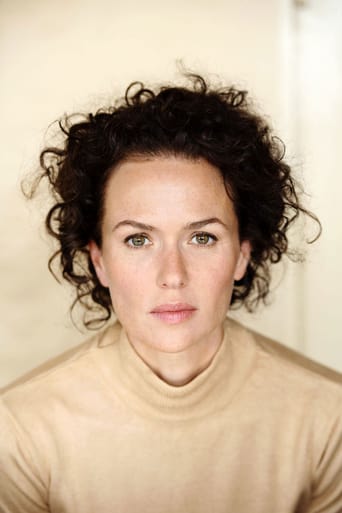Bardlerx
Strictly average movie
Konterr
Brilliant and touching
TrueHello
Fun premise, good actors, bad writing. This film seemed to have potential at the beginning but it quickly devolves into a trite action film. Ultimately it's very boring.
Plustown
A lot of perfectly good film show their cards early, establish a unique premise and let the audience explore a topic at a leisurely pace, without much in terms of surprise. this film is not one of those films.
orcavine
Good movie. Suggests that the assignation of the arch duke was a conspiracy of Austria and Germany not Serbia. The arch duke was a problem to the the Austrian elite and military as he was against a war against a war with Serbia and that he was going to upend the power control of the elite in Austro-Hungaria when Emperor (e.g. his wife would be empress and his children would inherit the throne). This also included that Empire would become a constitutional monarchy like Britain and that all nationalities would have equal power in the empire. He also didn't want war with Serbia as he believed that his military was needed to maintain control and repress civil war in the empire, not war with a neighbor country . The Austrian Military and power elite wanted otherwise and in a conspiracy with Germany plotted to murder him which they could then blame on Serbia and a pretense to start a war.
karris
It's interesting that this story is told from the POV of someone Jewish, in love with a Serbian woman, with ample foreshadowing of the holocausts both would face in the 20th century. Few people realize a million Serbs were killed by the Austrians in WWI, including many reprisals on civilians. There's also scanty knowledge of the systematic extermination of Serbs by fascists in WWII. And of course, scanty knowledge, readily dismissed, of the extent Austria was going to to provoke a war with Serbia for years before the Archduke's visit. But if you follow the way they are referred to in this script, and the treatment they receive the picture is painted accurately. You know, things like "Those dirty Serb dogs," "It's a Serb-owned business, let's loot it." "Let's go wipe them off the face of the earth." It was Austrian people, apparently, making this film, acknowledging freely that this was a story of a tiny, indefensible country sitting in one of those hapless superpower thoroughfares, who is constantly overrun, who should have died out, like the Jews, centuries ago, but here they still are. I see some of the reviewers are doubting how believable the railroad-to-Baghdad theory is that's put forth in the script, but comprising the land route between Europe and the Middle East, there's always something somebody wants, and whoever wants to be powerful is always sticking their hand in that cookie jar, have been for millennia, all the way back to the Romans.It was quite refreshing to see a depiction of this historical/ political reality, instead of the 'Serbs as Fascists' delusional propaganda that has been rife in western media in recent decades. (Another cookie jar saga there.) I had a good laugh at the remark in the script the Austrian bureaucrats were making about the outrageous demands they'd make on Belgrade to be sure they were refused. Apparently somebody in Austria was listening to a similar Belgrade conversation ca. 1999. Thank you Austria: Krausz, Ambrosch, Prochaska. It's nice to know there are people who have observed the nature of Serbia vs. the 20th century and see who the players really are, and the true nature of the tragedy.
Movie Critic
Over all a slick production about things almost no one has any knowledge about any more. I knew about the Archduke being assassinated in Sarajevo but no details... did not know the invasion of Serbia was the casus belli of WWI. The film was a tad heavy on the digital enhancement side but not too bad.I have several pet peeves with the story. The hero is Jew turned Christian DA type who is charged with investigating the Archduke's assassination. There was the dose of ugly anti-semitism.... is there nothing that can be produced with out this particular moral lesson? It dilutes the story line...which is a tad melodramatic and unbelievable anyway. To wit=The real cause for the Austro-Hungarian interest in Serbia was a cabal of greedy capitalists who wanted a railroad from Berlin to Baghdad that had to go through Serbia...sort of like the Keystone Pipeline idea. This lefty fodder is simply not likely as Baghdad in 1914 would have had all the economic interest of dry camel dung. Oil was not discovered until 1927. Also Serbia had been involved in numerous Balkan wars trying to enlarge its territory and was anti Austro-Hungarian pro Russian from 1903 on... it was anything but an innocent bystander. So it is a historical ignorant plot.Then there is the yuppie love angle...beautiful Serbian suffragette heiress (married no less) is the romantic interest of the Jewish DA.Wash out the PC stuff and get a more historically accurate motive and it would have been dramatically better.
Hidingintheshadows
I agree with most of the first review, except that I highly recommend it. It could perhaps be argued that it qualifies as 'historical fiction', but then, so is very much of what actually passes for historical non-fiction-- perhaps better referred to as 'history massaged', after the fact. Not to encourage the so-called 'conspiracy theorists', but fact is that history is replete with examples of history being massaged before the fact. Whether you agree with the premise (I am still checking), fact is that it actually (to my mind, and tastes), is much more engaging than, say pretty much anything that Tom Cruise has done--because this, at least, has a very strong possibility of being not far from the truth.










